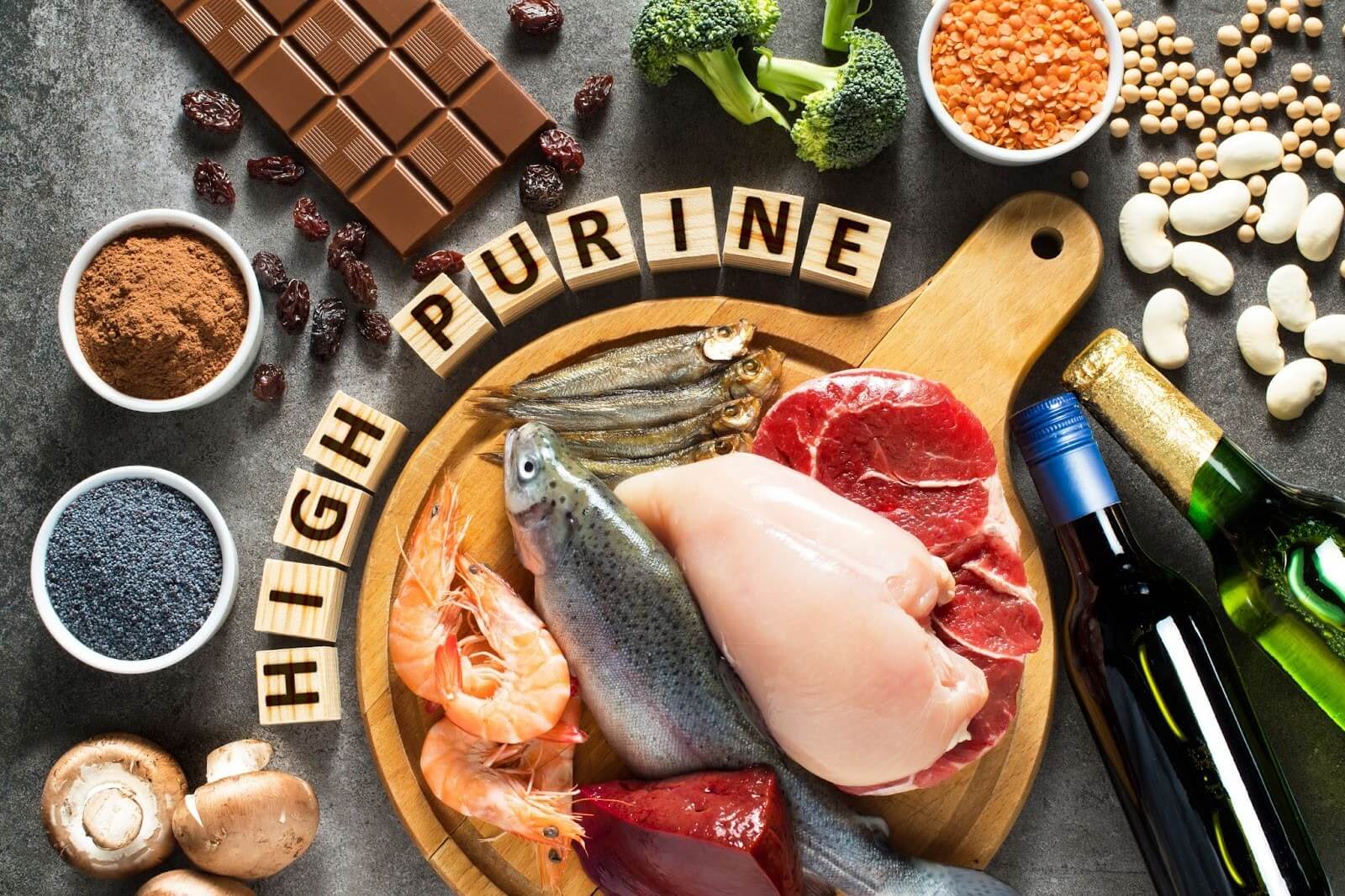Living with gout likely means you’ve heard the word “purines” more than once. If you or a loved one has gout, understanding what purines are and how they relate to joint pain and inflammation can make a significant difference in your quality of life. Do purines cause gout? We’re here to explain the science and how Juvent’s products can support joint comfort and health naturally.
What Are Purines?
Purines are natural substances found in your body’s cells and in many foods. When your body breaks purines down, it produces a substance called uric acid. Normally, uric acid is filtered by the kidneys and eliminated in urine. When uric acid builds up in the bloodstream, it can form sharp crystals in the joints, triggering the intense pain and inflammation associated with gout.
How Do Purines Contribute to Gout?
Gout is a type of inflammatory arthritis that occurs when there is too much uric acid in the blood, causing a situation known as hyperuricemia. The most common cause of hyperuricemia is high purine intake, often through diet. However, not everyone who eats high-purine foods will develop gout; it also depends on genetics, kidney function, and other health factors. Still, for those who have gout or are at risk, a low-purine diet can make a big difference.
Purine-Rich Foods to Watch Out For
When considering a low-purine diet for gout, it’s helpful to limit or avoid certain foods that are particularly high in purines, including:
- Red meat and organ meats like liver
- Shellfish, anchovies, and sardines
- Alcohol, especially beer and spirits
- Sugary drinks and foods with high fructose corn syrup
Instead, focus on foods that are low in purines and support overall health, like:
- Low-fat dairy
- Whole grains
- Fruits and vegetables
- Water (lots of it)
Managing Gout Beyond Diet: How to Get the Benefits of Activity Without Discomfort
When gout flares up, movement may be the last thing on your mind. However, gentle, consistent activity can help support circulation, lymphatic flow, and joint comfort, which are all important in managing inflammatory conditions like gout. The Juvent Micro-Impact Platform® is built to deliver low-magnitude mechanical stimulation at gentle frequencies tailored to your body’s hydration levels and tissue composition. As you stand on the platform, these gentle impacts travel through the body, encouraging cellular activity, supporting circulation, and promoting healthy joint mechanics without strain.
Unlike typical exercise or vibration platforms, Juvent calibrates to the user each time. It delivers safe, research-backed stimulation that may support recovery from swelling or stiffness in the joints. It’s an optimal way to keep active without worsening inflammation or discomfort from gout and other conditions. Since gout often affects the feet and ankles, Juvent’s low-impact, upright design allows users to remain still while still engaging their body’s healing systems. No painful walking or movement is required; simply stand still while you enjoy a show or spend time on your phone. Low-magnitude mechanical stimulation may help prevent loss of bone density for those who may be less active, as shown in a 2016 study by Kiel et al. For those who are less active due to their gout, the Micro-Impact Platform could be a saving grace for keeping bones strong for lifelong health.
Supplementing Joint and Bone Health
In addition to gentle movement, nutritional support matters when it comes to purines and gout. Juvent’s HydroxyBMD3™ supplement system includes nutrients that may help support healthy joints, bones, and tissue function. The magnesium and zinc contribute to connective tissue health, using Albion® chelated minerals designed for your body to easily absorb instead of waste like with other supplements. Packed with vitamins D3 and K2 in the form of K2VITAL, the supplement aids the calcium balance and skeletal strength necessary for holistic wellness. While not a treatment for gout, these ingredients can help provide the structural support your joints and bones need, especially if you’re managing an inflammatory condition or recovering from flare-ups.
Answering the question of whether purine is bad for gout can be complicated, but for many people, the answer is yes. Managing purine intake can help relieve symptoms, but supporting joint health from every angle is the best approach. Juvent is your partner in safe, science-backed ways to support your body without adding stress to already sensitive areas. Paired with smart dietary choices and targeted nutritional support, our micro-impact device helps you take a proactive step toward better comfort and long-term wellness.
Sources:
- https://info.juvent.com/hydroxybmd/
- https://pmc.ncbi.nlm.nih.gov/articles/PMC9459802/
- https://pmc.ncbi.nlm.nih.gov/articles/PMC4834704/
- https://pmc.ncbi.nlm.nih.gov/articles/PMC3889483/


Share:
HUMAN HEALTH BENEFITS OF LOW MAGNITUDE MECHANICAL STIMULATION (LMMS)
Juvent Joins the Inc. 5000 List of America’s Fastest-Growing Private Companies